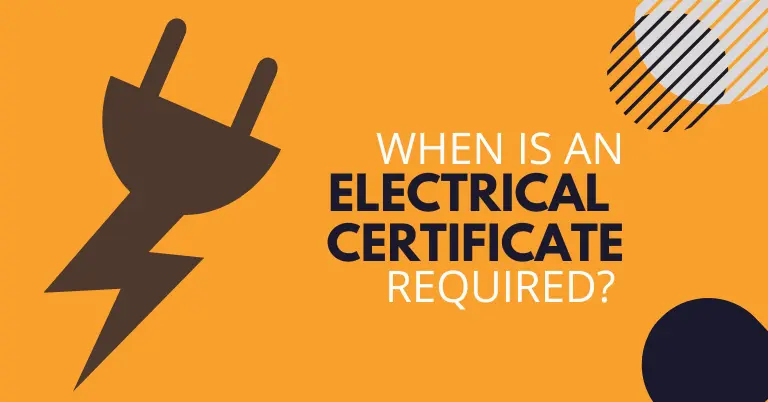When is an electrical safety certificate required for landlords in 2022?
An electrical safety certificate is required when a landlord is renting out a property. The certificate ensures that the property is safe to live in and that all electrical systems are functioning properly.
What is a landlord electrical safety certificate?
A landlord electrical safety certificate is a document that proves that the electrical installation in a property is safe. It is issued by a registered electrician and is valid for five years or depending on the condition of the installation.
Why do landlords need an electrical installation condition report?
Landlords need an electrical installation condition report to protect their tenants from potential hazards posed by faulty electrical systems. The electrical safety certificate inspection also helps to ensure that the property is compliant with electrical safety standards.
How long does an electrical safety certificate last?
An electrical safety certificate is valid for five years or depending on installation condition from the date of issue. After this, the landlord must have the property inspected by a registered electrician and obtain a new electrical safety report certificate.
Do I need a landlord electrical safety certificate if the property is new?
An electrical safety certificate is not required if the property you purchased was newly built or had a recent wiring job; instead, It must have Electrical Installation Certificate (EIC) for five years periodic inspection.
For example: If you purchased a property and the EIC was signed in 2022, then you will not have to get an electrical safety certificate until 2027 but in 2028 you need to have electrical safety inspections with that time electrical safety standards.
How do I get a landlord electrical safety certificate and what does it involve?
In order to get a landlord electrical safety certificate, you must have a registered electrician carry out an inspection of the property. The electrician will assess the condition of the electrical installation and issue a certificate if they deem it to be safe.
The inspection will involve checking the following:
- The condition of the fuse box/consumer unit
- The earthing and bonding
- The condition of the wiring
- The condition of electrical sockets
- The safety of the electrical installation as a whole
After the inspection, the electrician will provide you with a certificate if the property passes. If there are any issues with the electrical installation, the electrician will provide you with a report detailing the work that needs to be carried out in order to make it safe.
How much does a landlord’s electrical safety certificate cost?
The landlord’s electrical safety certificate cost is between £130-£180 or depending on the size and type of the property.
Why choose us for electrical installations?
If you’re looking for a qualified and competent person, reliable approved and professional team to carry out your electrical safety certificate requirements, then look no further than us.
We have many years of experience in the industry and are passionate about providing a high quality service to our customers.
Our electricians are accredited by NICEIC and NAPIT, meaning that we meet their high standards for safety and quality.
As well as electrical installation certificates, we also offer a range of other services such as installation, maintenance, electrical wiring, and electrical appliances repairs. So whatever your needs, we’re confident that we can help by following updated electrical safety standards.
If you would like to find out more about new electrical installations, electrical safety inspection, or any other service get a Free Quote, please don’t hesitate to get in touch.
Conclusion
If you are a property owner or landlord in any Borough of London, then Electrical safety certificates will be mandatory for all rental properties, and it is best to Book an Appointment with us now to ensure your property is compliant.
By staying ahead of the curve and getting ahead of any potential electrical issues, you can avoid costly fines and keep your tenants safe.
Have questions?
Contact Us today for more information.



